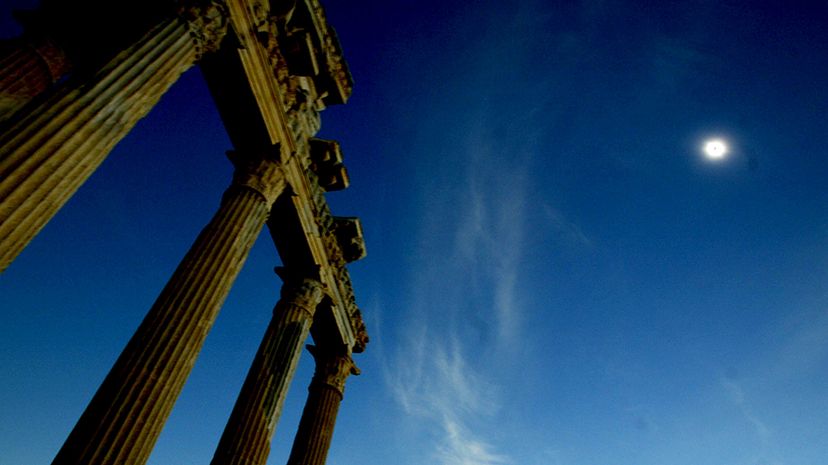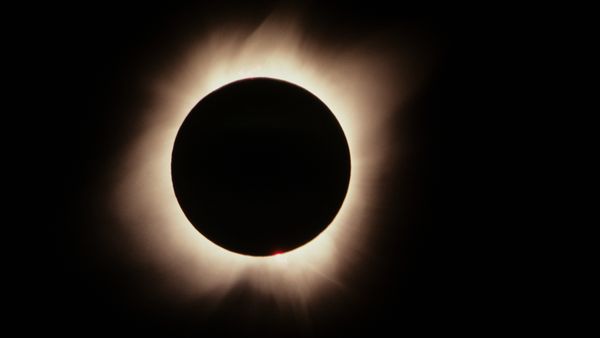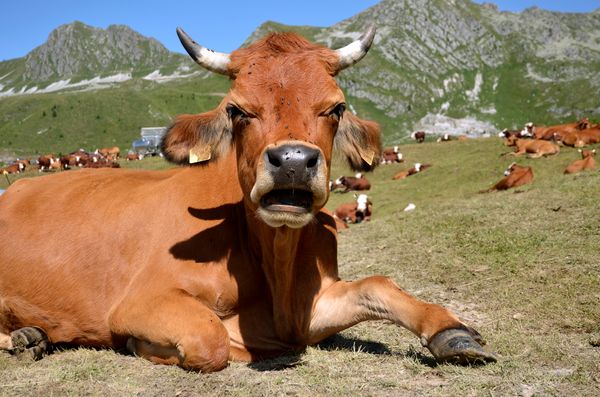
We know enough about the cause of a solar eclipse to think of it as awe-inspiring instead of terrifying. But looking forward to the disappearance of the sun is a relatively new development in human history.
For centuries, people scrambled as the Earth plunged into darkness and feared the worst — a terror that ranged from the belief that demons swallowed the sun to being rejected by their gods. It's completely natural for humans, in the absence of scientific explanations, to develop superstitions around natural phenomena.
Advertisement
The word "eclipse" originated from a Greek term for abandonment, "ekleipsis," according to E. C. Krupp, an authority on astonomy and culture; Krupp's been the director of Los Angeles' Griffith Observatory for nearly four decades. But long before the Greeks, the ancient people of Mexico recorded their own reactions. Mayans created glyphs that showed a giant serpent swallowing the sun and Aztecs erupted into chaos and began sacrificing those with the lightest complexions.
Many Chinese believed solar eclipses were caused by dragons — or in some cases, demons — that lurked among the stars until they suddenly began eating the sun. Variations of this myth exist in other cultures. The Hungarians envisioned a giant sun-eating bird, while the Siberians believed a giant bear was to blame. In Korea, the culprits were fire dogs, and an indigenous people in Asia feared an evil toad that gobbled the sun like a fly.
One of the most complex solar eclipse myths involves a Hindu demon called Rahu, who stole a potion for immortality. Rahu's thievery was witnessed by the sun and moon, who reported it to the Hindu god Vishnu. As punishment, Vishnu decapitated Rahu and caused his head to live forever but his body to wither away. Still seeking vengeance upon the cosmic snitches, Rahu's disembodied head continues to chase the sun and moon — sometimes catching and swallowing them and causing an eclipse. Without a body, Rahu cannot make them disappear forever, and the sun and moon simply reappear after falling through his throat.
A number of societies have held beliefs that an eclipse can influence pregnancies, causing pregnant women to miscarry, give birth to babies with physical abnormalities or even transform into predatory beasts themselves — if the sun isn't restored to its proper state by priests, that is.
These beliefs may sound a little extreme to modern people, but rituals stemming from myths are still observed in many parts of the world. In India, fasting can occur before a solar eclipse and, during the phenomenon, some religious practitioners advise singing and chanting. Regardless of what activities eclipse watchers engage in these days, one essential activity is to wear proper eye protection.

Advertisement

